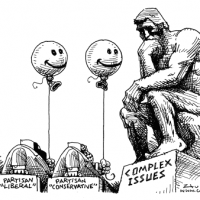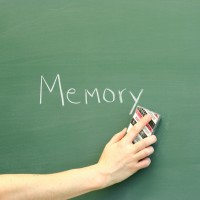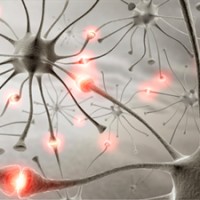I’ve been thinking recently about relationship between politics and economic policies on the one hand, and what we know about human psychology and the causes of human behavior on the other. More specifically, I’ve been thinking about how the knowledge which we learn from research in the cognitive sciences is too often neglected, distorted, or…
Imagine we live in a world where you can go to a clinic and choose to have certain memories wiped away, erased forever. Think of all the terrible memories you have accumulated in your life, and about the prospect of them never being able to force themselves on your consciousness ever again. Would you go…
Posted on May 16, 2011
In Brain Research, by Greg
Please note, what I am doing here is philosophy as informed by some very new research in the sciences. Memory deletion is NOT a reality. There is no clinic or hospital to go to have your memories erased. Please do not email me or comment with requests for help with trauma you have suffered. If…
Posted on April 18, 2011
In Book Reviews, by Greg
On the surface, a surreal and fantastical story about the intertwining narratives of a teenage boy running away from home to escape an Oedipal prophecy, and the journey of an elderly mildly retarded man who can talk to cats, doesn’t seem exactly like the kind of material I normally post about on this blog. But…
What does it mean to be a victim of circumstances? What is the difference between people who take personal responsibility for their lives, and those who seemingly choose not to? Is it possible for us to live in a world where people consistently actualize their potentialities? And most importantly, what ways of thinking about human behavior will allow the last question to come to fruition?
Posted on February 2, 2011
In consciousness, by Greg
Today I want to talk about memory, and what’s wrong with some of our standard conceptions of how memory works, and even fundamentally what memory is. If you open up a brain and look inside it you won’t see any memories. You don’t open up a neuron as if it was a storage container and memories come spilling out. What about a network of them makes this story any different? How the heck changes in the strength of connections between cells cause a memory to be stored and experienced later is not something cognitive science has been able to address yet.








